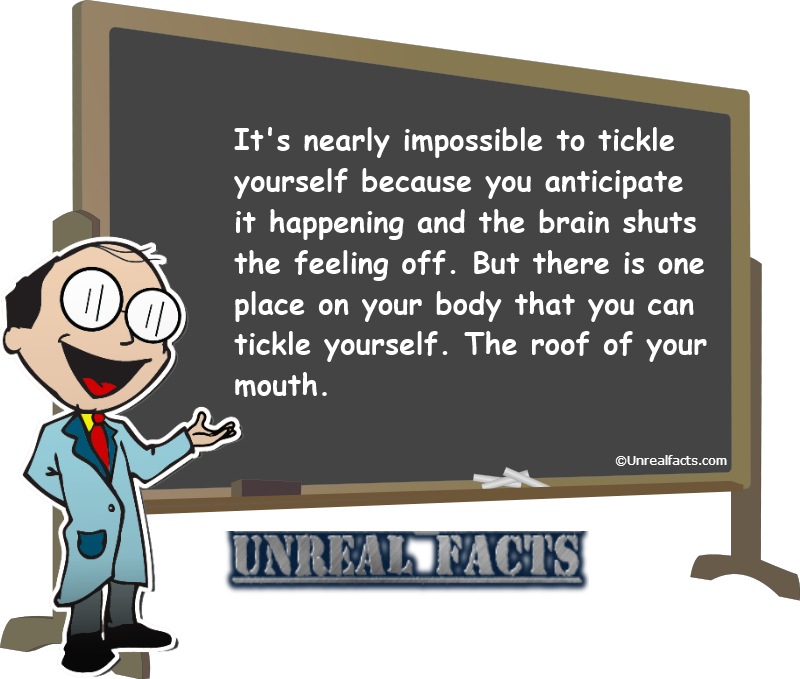Try and tickle yourself, impossible you say? I say not, and for a very good reason. Although most people find it nigh on infeasible, it can be done, but only in one location. Want to know where that special spot is? Well first we better tell you why it’s near impossible to tickle yourself.
As you may already know, being tickled is a panic response. It’s a process that we have developed to alert us to things that may be crawling or slithering along our skin. While it mostly feels good and causes us to laugh, the reaction is an important evolutionary step in which we have had to acquire. Imagine for a moment living 60,000 years ago in the jungle. Life would have been a struggle, and there would have been lots of things that wanted to kill you. Some of these things weren’t necessarily large, but they were deadly nonetheless. Being able to sense small creatures gave us an advantage. But what about today?
So humans have evolved and advanced a hell of a lot over the centuries. For the majority of people we no longer live in jungles, with the vast bulk of humanity residing in cities around the world. For this reason we no longer have a need for the tickle panic response, but it’s still with us. Not that it’s a particularly bad reaction to have. Parents love tickling their children, and their children love it in return. Even lovers can embrace the event. But it only works when you apply it to others, and it’s nearly impossible to tickle yourself.
A couple of studies were conducted to look into why people can not feel the tickling sensation when they apply it themselves. The first study scanned the brain while being touched. First the test subject touched their own hand, then someone else touched their hand. The scans revealed that the brain responded differently when touched by another person. In another study, the test subjects controlled a robotic arm that touched them. First, the arm touched the subject with no delay. The second test had the subject control the robotic arm which also controlled another robot which touched the subject. When there was no delay the brain stopped the patient from sensing the delicate touch as a tickle. But if there was a slight delay, even a fraction of a second, the test subject responded differently. So what does all this mean?
The reason it’s nearly impossible to tickle yourself all thanks to your brain. The same thing that evolved to allow us to be tickled also developed a mechanism to shut off, or filter out our own attempts at tickling. As we’ve said, tickling is a panic response. The reaction of panic or surprise means that we didn’t anticipate it happening. Even if we knew we were going to be tickled, we don’t necessarily know where, for how long and the intensity of the episode. That’s why when someone else tickles you you will react with laughter. You weren’t expecting it. But try and tickle yourself, impossible, or nearly impossible. This is because your brain knew it was going to happen. It knew every aspect of the intended event and filtered out the sensation for you. So unless you can surprise yourself it just won’t happen. Brain, you suck. But remember we said nearly? We said it for a reason.
Impossible to tickle yourself? Not quite. Learn how to do it.
Even though it’s nigh on impossible to tickle yourself, it can be done. There remains one location on the body that you can do it. That place is the roof of your mouth. No one knows the reason, but a few have speculated a possible cause. One suggestion is that that particular part of the body isn’t used to being touched in such a way, so will react the same as if someone else, or a bug was applying the sensation. Go ahead and give it a try. You will be pleasantly surprised.
If you liked this fact you will most probably like these too:
- Rats laugh when tickled
- Why is Elmo called the Little Red Menace?
- Fruit bats cry
- Manchu mothers perform oral sex on their baby boys



